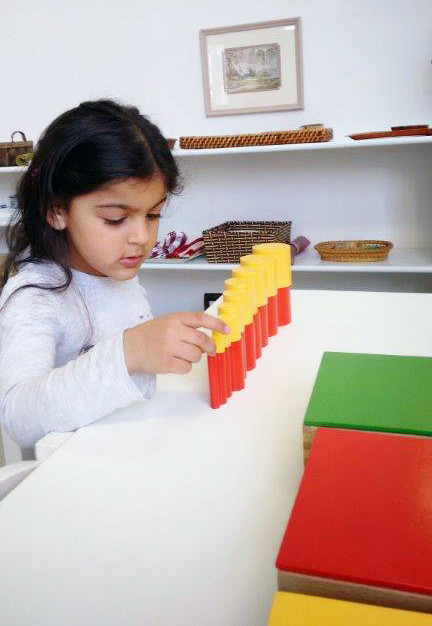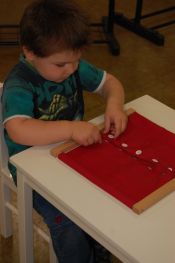Montessori Education
The Montessori classroom is a carefully prepared environment equipped with didactic materials that afford the opportunity for purposeful work.
At the time of its inception, Montessori was an unprecedented concept based on the scientific study of children. The idea that education must be a reciprocal process, acting as an aid to development and life, forms the core of the philosophy. Montessori maintains a profound respect for the child’s personality, providing space and freedom within limits.

Montessori felt that the child knows best what is needed for his/her self-construction. Self-education allows for the greatest growth and gives rise to positive attitudes towards learning. When children are involved in their education, they develop confidence in their ability to learn.
Montessori is based on the child’s need to learn through experience. A Montessori classroom is a carefully prepared environment equipped with didactic materials that afford the opportunity for purposeful work.
Montessori sets no limits or expectations on what the child can achieve. Each child works at his/her own pace, free to choose work, socialize, and help others.

The Montessori method develops the whole personality of the child, not just his/her intellectual faculties. The child can exercise his/her powers of deliberation, initiative and independent choice. By living as a free member of a real social community, the child is trained in those fundamental social qualities that form the basis of responsible citizenship.
Peace begins with the individual. When individuals have been allowed to become themselves, when individuals have been allowed to belong to their social group, when individuals are intellectually satisfied and when they can find their place in the world and have a sense of responsibility and purpose for living, peace can happen.

